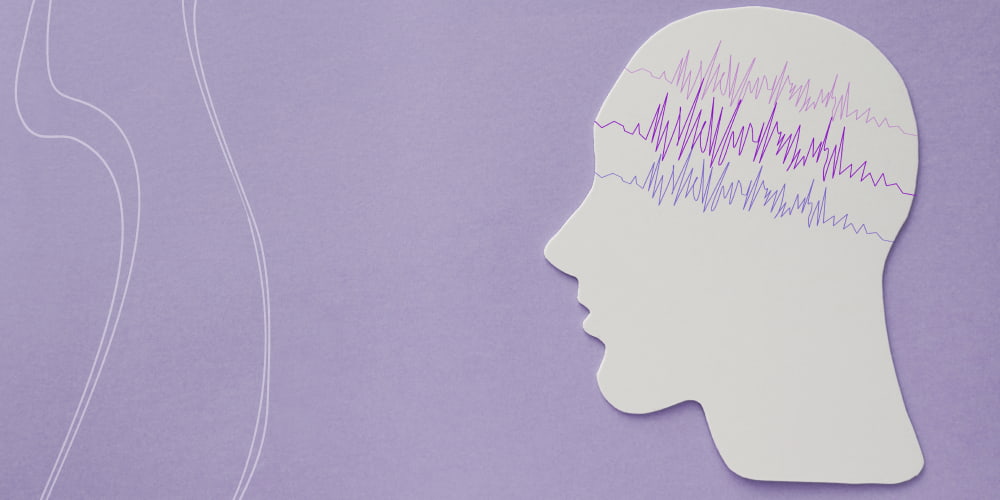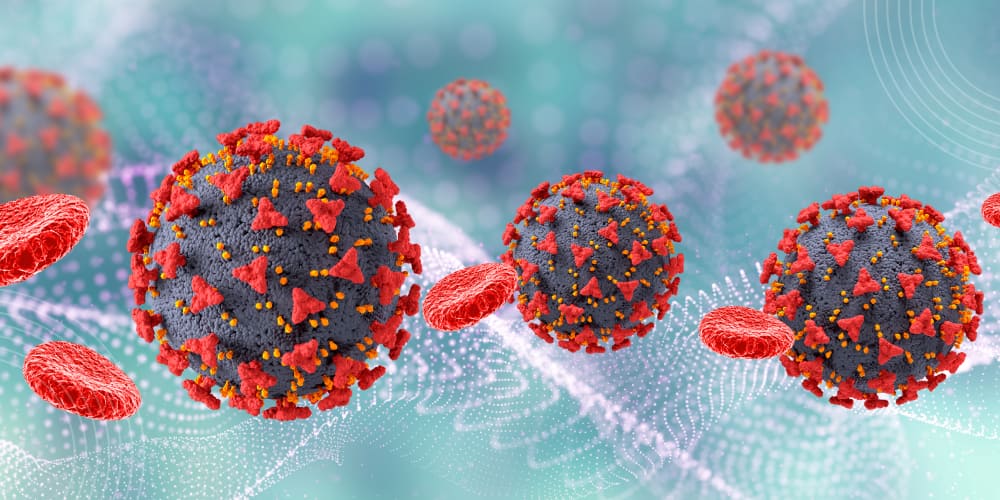Neurophysiologists believe that coronavirus infection often does not penetrate the brain tissue, but it does weaken the walls of small vessels inside. As a result of brain dysfunction, people are monitored more often for strokes.
“Observations show: due to inflammatory factors that are associated with the penetration of the virus into the patient’s system,” explained one of the authors of the work, a researcher at the National Institute of Central Nervous System Disorders and Stroke (USA) Ravindra Nath.
The virus can enter the brain and disrupt its functioning, causing acute brain dysfunction.
In a new study, Nat, a scientist, and his colleagues have suggested why some of these problems arise. These scientists studied in detail how the state of the circulatory system of the brain changed in several dozen COVID-19 patients who died between March and July this year.
What is the reason for brain dysfunction?
All these patients died very quickly and unexpectedly. The causes of their death were not always related to the penetration of SARS-CoV-2 into their lungs. Initial analysis showed that their deaths were associated with brain damage. However, how this damage appeared, scientists do not know.
Nate and his colleagues assumed that the patients died due to the coronavirus getting into their central nervous system. Testing this hypothesis, biologists have studied the structure and properties of the sense of smell and the brain stem.
The MRI scans showed that there were many foci of inflammation and minor bleeding in both areas of the brain; that is the walls of small capillaries and other vessels that are permeable to blood and the proteins it contains. Scientists examined sections of these parts of the nervous system in the hope of finding virus particles in them and finding out the death of vascular and brain cells.
“We expected to see traces of damage from infection and chronic oxygen deprivation. Instead, there was a lot of damage to normal nerve tissue, which is usually used after strokes or inflammation of the brain,” explained Nat.
As a result, “holes” appeared in them, only some of which were filled with blood clots and microglia (protective tissue of the brain), which leads to brain dysfunction.
The capillaries of the brain collapsed not due to infection with SARS-CoV-2 but because of the very high activity of the immune system, which began to attack not only the virus but also healthy cells of the blood vessels.
Scientists hope that observing patients’ health, memory, or intellectual abilities, which have deteriorated after coronavirus infection, will help understand how long the damage to the brain vessels persists and choose a therapy that could prevent their appearance or eliminate them.
Human brain and coronavirus:
The coronavirus affects the brain in two ways. Firstly, the coronavirus affects not only the lungs but also the brain, and as a result, causes acute brain dysfunction. Now there are more and more European studies that show that patients can significantly damage the brain. And in inpatients, we even see a state of delirium and psychomotor agitation, even though these are people who have never consumed anything alcohol. This reaction is due to the coronavirus and, of course, to a lack of oxygen.
Not only can coronavirus affect the brain, but also oxygen deficiency. When a person has nothing to breathe, their lungs do not work well, and their brain experiences hypoxia, which is a lack of oxygen. And the consequences of this in patients persist for a long time. In principle, such consequences may persist for up to 6-7 months.
Scientists from several countries are planning to do a huge study into how long a person’s brain and central nervous system can remain damaged after infection with coronavirus. Therefore, experts want to study whether the virus can lead to cognitive decline, Alzheimer’s, Parkinson’s, or other forms of dementia.
There is currently no evidence that the coronavirus can cause Alzheimer’s in the future. But scientists have already discovered that the virus is able to enter the brain. There is already the first evidence that the coronavirus is able to infect neurons in the brain through the mucous membranes after passing through the nose. Previous research also suggests that COVID-19 can cause delirium, stroke, and even paralysis.
Scientists from Brazil find out that:
Coronavirus is capable of damaging the most important cells of the brain and central nervous system – astrocytes and microglia, scientists from Brazil found out. This damage can lead to schizophrenia, as well as Alzheimer’s and Parkinson’s. In addition, this also explains the symptoms of COVID-19, such as headaches, seizures, and loss of smell.
SARS-CoV-2 resembles astrocytes, so the brain does not recognize it as a foreign agent. By themselves, astrocytes play a crucial role in the brain in creating and storing information about long-term memory.
Among the most frequent lesions of the central nervous system by viruses that are described in foreign publications are meningitis, encephalitis, and acute cerebrovascular accident. If we talk about symptoms, these are impaired consciousness, epileptic seizures, headache, dizziness, and other disturbances of consciousness.
The coronavirus also causes hypoxia in the brain and decreases the number of synapses.
Often, disorders in the central nervous system and the brain occur due to the fact that the psychosomatics of a person is severely damaged during an illness, and what is happening around, a person is afraid and as a result, this leads to mental disorders.
The fear that this infection creates clearly worsens the course of many chronic diseases and can take its toll on the brain. Fear is a very powerful negative emotion.
Meanwhile, researchers from Brazil also found that coronavirus causes changes in the brain, not only in severe cases of the disease but also in patients with a mild form. With a mild course of infection, the patient may not even notice that something is happening to their brain.
Symptoms can then occur, such as memory loss, severe fatigue, autonomic symptoms, taste perversion, lack of sleep, nausea, and then they can not be noticed, which is already to speak at an early stage.












Please, leave your review
Write a comment: